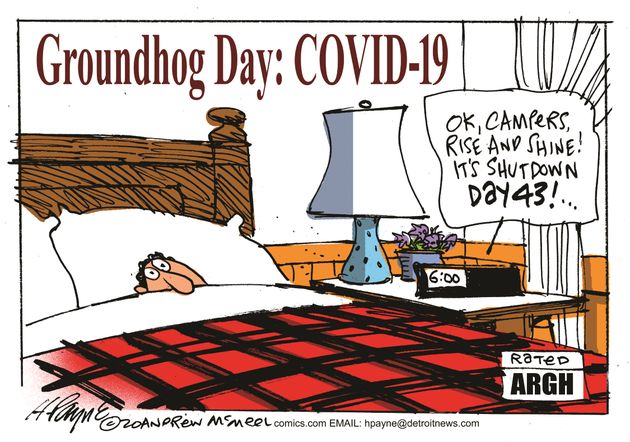New report says coronavirus pandemic could last for two years – and may not subside until 70% of the population has immunity

A key factor in their prediction for the current pandemic revolves around herd immunity, which refers to the community-wide resistance to the spread of a contagious disease that results when a high percentage of people are immune to it, either through vaccination or prior exposure.
"The length of the pandemic will likely be 18 to 24 months, as herd immunity gradually develops in the human population," the report says. "Given the transmissibility of SARS-CoV-2" — the virus that causes COVID-19 — "60% to 70% of the population may need to be immune to reach a critical threshold of herd immunity to halt the pandemic."
It will take time to reach that point, since data from blood tests show only a small fraction of the overall population has been infected so far, and a possible vaccine is still months if not a year or more away. It is not yet clear whether people who've recovered from the infection will be immune or how long such protection would last.
The report lays out several possible scenarios, including one in which a larger wave of illnesses may happen in the fall or winter of 2020 and then subsequent smaller waves in 2021. The researchers say this model — similar to the pattern seen in the devastating 1918 Spanish flu pandemic — would "require the reinstitution of mitigation measures in the fall in an attempt to drive down spread of infection and prevent healthcare systems from being overwhelmed."
Two other scenarios in the report involve either recurring peaks and valleys of outbreaks, or smaller waves of illness over the next two years.
As the virus continues to circulate among the human population and outbreaks finally start to wane, they say it will likely "synchronize to a seasonal pattern with diminished severity over time."
https://www.cbsnews.com/news/coronavirus-two-years-70-percent-immune/




Post a Comment